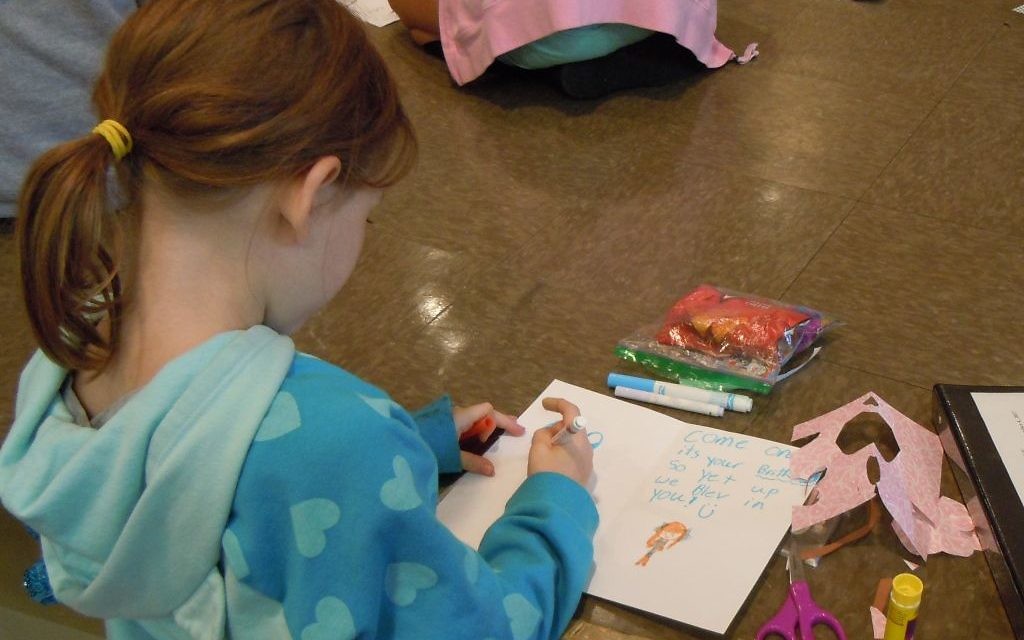Emanu-El Talks Hate, Prepares for Action
The congregation's Social Action, Local Action mini-conference also targets hunger and addiction.

A conversation at Temple Emanu-El about racism, anti-Semitism and hate Sunday morning, Oct. 22, chipped away at the concept of white privilege.
“My generation is the first generation of Jews in America to be white, and we’re not good at it,” said Judy Marx, the executive director of Interfaith Community Initiatives.
Marx, whose father is a Holocaust survivor, was part of a panel with distinct viewpoints on oppression: Lauren Menis, a founder of the Atlanta Initiative Against Anti-Semitism, experienced apartheid while living in South Africa until she was 9; Chianti Harris, the outreach pastor at Greater Piney Grove Baptist Church, is a college-educated mother and wife who is afraid to go certain places at night; and facilitator Marita Anderson grew up in the Soviet Union, where Jews were not considered white and had no privilege.
Get The AJT Newsletter by email and never miss our top stories Free Sign Up

Their discussion was part of Temple Emanu-El’s first Social Action, Local Action mini-conference.
Sally Mundell, the founder of The Packaged Good and the co-chair of Emanu-El’s social action committee, said the Reform congregation in the past year has served more than 500 dinners at Mary Hall Freedom House, donated 1,283 pounds of produce harvested from Garden Isaiah, collected more than 5,000 pounds of nonperishable food during the High Holidays’ Operation Isaiah and worked more than 2,000 volunteer hours.
But the mini-conference reflected a desire to do more with people beyond Emanu-El, especially in three areas: mental health and addiction; hunger and poverty; and hate and anti-Semitism.
“Hate is hate,” Menis said, explaining that AIAAS is trying to connect with other communities in metro Atlanta by emphasizing that when one group is targeted, all are affected.
Aside from the ability of most Jews in Atlanta to pass as part of the white mainstream, Marx said the Jewish community has one big advantage in a multicultural society: 2,000 years of Diaspora experience.
Koreans, for example, have never had organized communities outside Korea, she said, and they want to know how Jews have survived and even thrived all this time.

Harris said it’s important to maintain real-world connections and conversations, not just interact through social media while watching the shouting on 24-hour news channels. People need to get involved in their circles — places such as houses of worship, PTAs and neighborhood associations.
“Race is probably our biggest problem, and we’re terrible at it,” Marx said. “But we are good at faith.”
Emanu-El Rabbi Spike Anderson emphasized from the start, however, that although the mini-conference was about discussing policy, “conversation cannot be the end.”
Noting that everything we do in Judaism is followed by an action — say the Motzi, eat the bread — Rabbi Anderson said the challenge for everyone is to do something with the lessons of the morning.
“The world is sick, and we are empowered to be its healer,” he said.
One-time-only events aren’t enough, Marx said. To make a difference, reduce mistrust and boost understanding, people need to be intentional with ongoing efforts.




comments